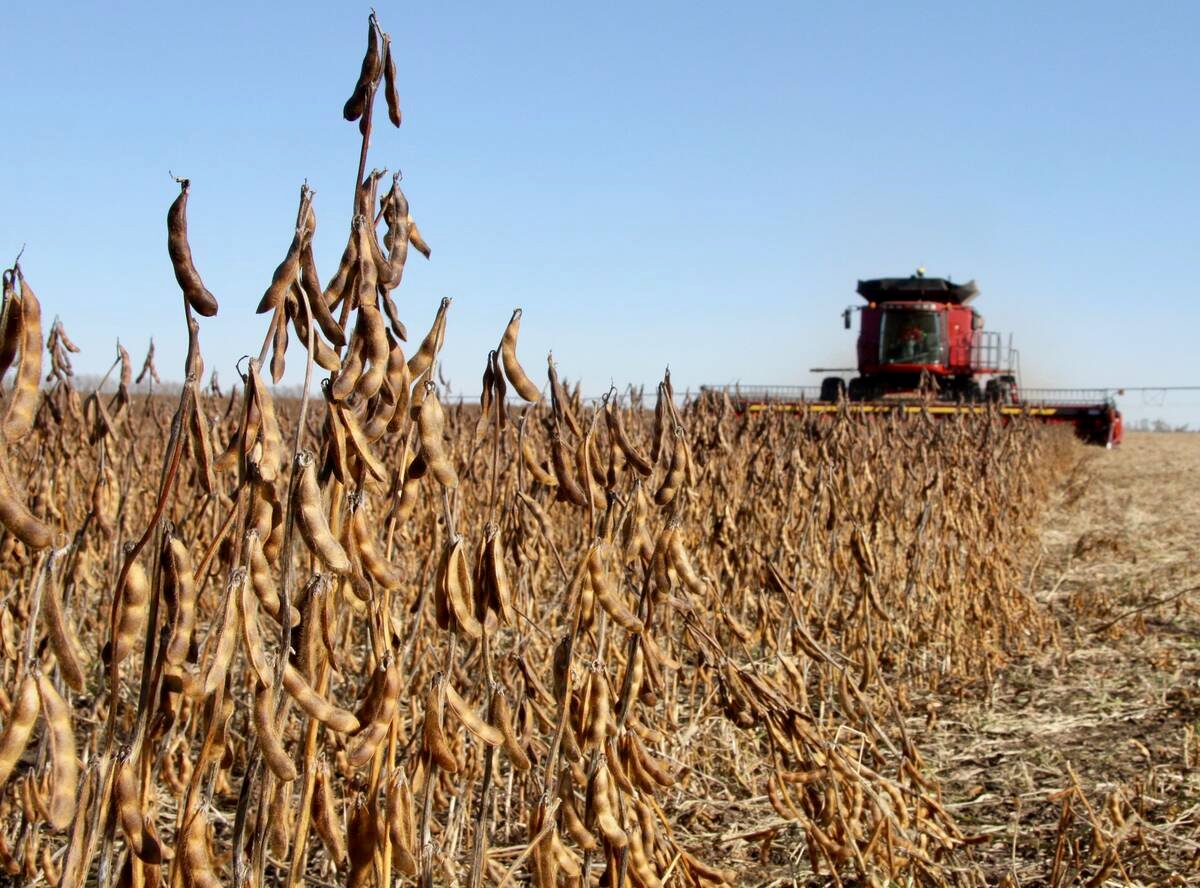All it takes is one bad seed.
Or in Europe’s case, all it takes is one genetically modified seed to contaminate the whole bunch.
Some canola experts say Canada stands to lose up to 400,000 tonnes in canola sales to Europe this year because Canada has decided not to segregate transgenic varieties from regular canola seed.
Europe buys Canadian canola sporadically from year to year, depending on its own domestic production.
In 1994-95, Canada sold 900,000 tonnes of canola to Europe compared to just 300,000 the following year, according to the Canadian Grains Industry statistical handbook.
Read Also

U.S. soybean crop was not all roses this year
The USDA is forecasting record U.S. soybean yields but for some growers it was a disastrous year due to excess moisture.
It looks like European countries will be in the market for canola this year, but Dale Adolphe fears they won’t be looking to Canada.
“There is the potential to see this market disappear for Canada this year unless the approvals come through,” said the president of the Canola Council of Canada.
Genetically modified crops including canola have passed environmental, food and livestock feed approvals in Canada, the United States and Japan.
The European Union, sparked by protest in Germany, Austria and France, has been dragging its heels.
Approvals are stalled over new legislation that will require foods from genetically modified plants to be labeled as such.
The EU’s standing committee on foodstuffs, with representation from the 15 member states, backed a proposal in April saying labeling rules aimed at protecting consumer health and ensuring fair competition should apply to all gene modified food.
Labeling means sales
“We may see some movement now if the labeling goes through,” Adolphe said, adding the canola varieties should be approved for the 1997-98 crop year.
This is the first year Canada and the U.S. have produced transgenic canolas that were not separated from other canolas.
Transgenic canola will not be distinguished in either country’s supplies, and both say they want mandatory labels on genetically altered foods only if there is a significant change in the nutritional composition of the food or if there are safety concerns.
Europe usually looks to Canadian canola only when prices drop because of higher than expected production here, said Agriculture Canada oilseed specialist Lyndon Peters.
“Given that they are a large producer themselves, our market price has to drop a fair bit to compete in that market.”
Canadian canola exports should reach 2.6 million tonnes this year, up from 2.4 million last year, he said.
Depends on production
“It may not be necessary to move any to the European market but that will be very dependent on Canada’s crop year,” Peters said.
Traditionally, Canada sells about 1.6 million tonnes of canola to Japan, 500,000 tonnes to Mexico and 300,000 to the U.S. The remaining 200,000 tonnes is sold to Poland and other countries.
Fred Boyce, a trade policy officer with Agriculture Canada, said European crushers would normally be committed to buying about 100,000 tonnes of Canadian canola by now.
But they are holding off and industry officials are getting worried.
“The backlash from consumers has put paralysis into the system,” Boyce said. “None of the crushers will commit to sales of products they could find difficult to handle.”
Government and industry officials from Canada and the European Union will meet in Brussels in July to discuss trade implications of advances in biotechnology, Boyce said.














